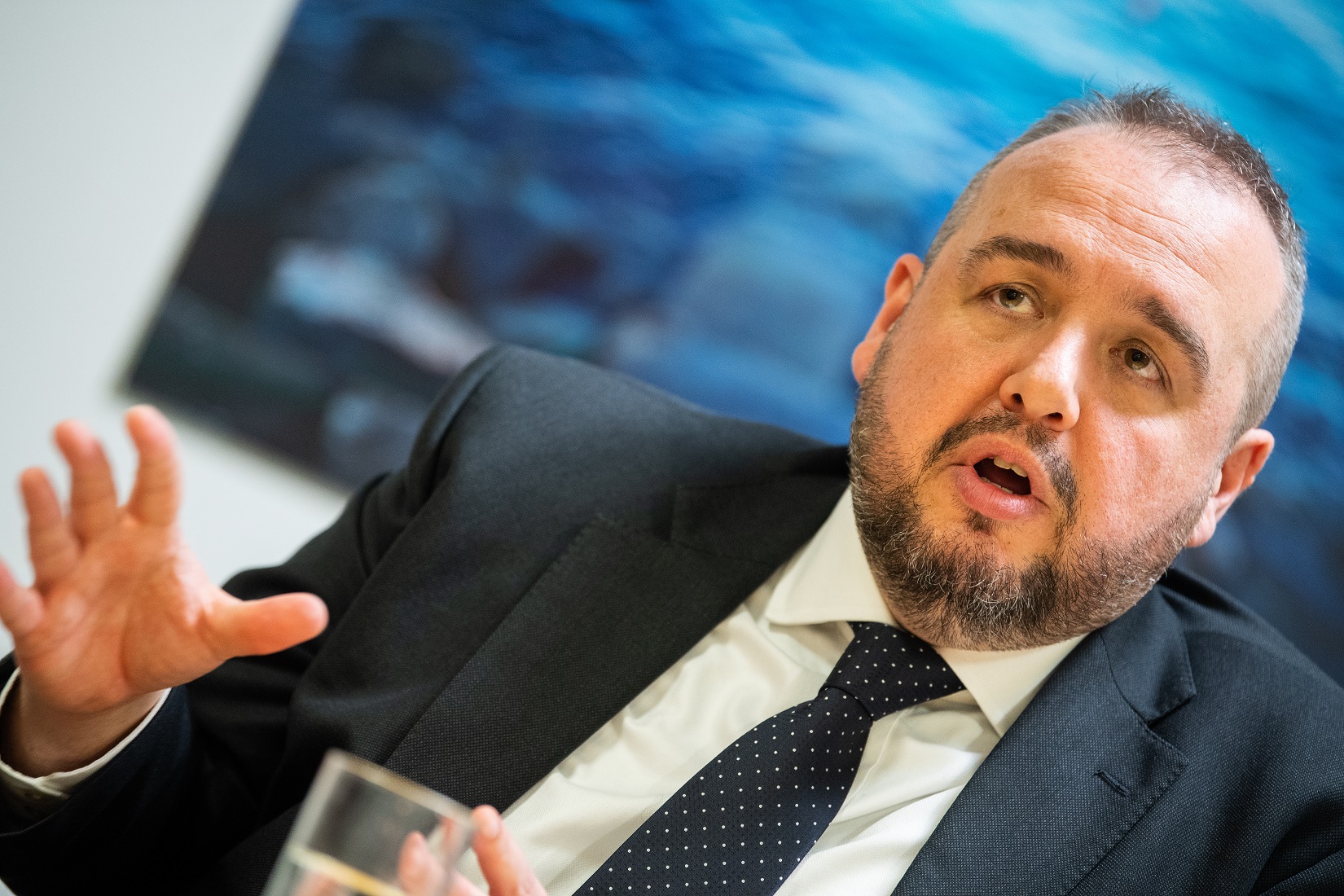


The Government is preparing a £400,000 income support package to help islanders who could lose their jobs in the transition to a higher minimum wage next year.
Chief Economic Advisor Tom Holvey and Economic Development Minister Kirsten Morel revealed the plans whilst answering questions from the Economic and International Affairs panel on the Budget 2025 to 2028.
Much of their discussion centred on Government plans to increase the minimum wage from its current rate of £11.64 to £13 per hour in April next year.

Pictured: Tom Holvey is the Government's Chief Economic Adviser.
The change is the first step in a transition to a living wage by April 2026, when the minimum wage will be set at two-thirds of the 2024 median wage.
The £1.3 billion proposed Budget for the coming year, which focuses on addressing cost-of-living pressures for islanders, includes a £20m support package with a £6m "productivity boost" via the Government's productivity support scheme, a £7m investment in the visitor economy and hospitality industry, £3m for training investment, and more than £2m in additional support for the rural and marine economy.
Chamber of Commerce CEO Murray Norton has previously said that business leaders were "very concerned and shocked at that figure and just how sustainable it will be for their business".
Mr Holvey, answering questions from the Panel, said the Government has been "quite open" in saying that "there are going to be some possibilities of job losses, as you would expect".
He added: "We would expect, in the current labor market, for those to be absorbed very quickly back into the labour force. I'm not saying it isn't difficult for those individuals, but from a macroeconomic view, that labour being redistributed is not unhelpful, actually.
"There's also a possibility that people maybe temporarily be registered as Actively Seeking Work and therefore income support going up a little bit. That's what our forecast is. It won't be saving for income support, but a cost."

Pictured: Deputy Kirsten Morel is the Economic Development Minister.
Mr Holvey confirmed that this cost to income support could be around £400,000 in the first year, according to models which had been externally reviewed.
He broke down where businesses will find savings, half of which will come from price increases – which could result in a "slight inflationary pressure" – around 20% will come from job losses, 20% from renegotiation of contracts, terms and references, and 10% from the business's profit margins.
Panel chair Deputy Montfort Tadier asked whether consideration had been given to islanders who did not have five years' residency and cannot claim benefits.
Mr Holvey said the Social Security Minister had considered that group of workers.
Asked whether he supported raising the island's minimum wage to living wage, Deputy Morel said: "The principle is something I have always supported but I think it needs to be done in the right way".
Comments
Comments on this story express the views of the commentator only, not Bailiwick Publishing. We are unable to guarantee the accuracy of any of those comments.